9 Essential Skills Every Professional Mobile Support Unit Aircraft Technician Should Have
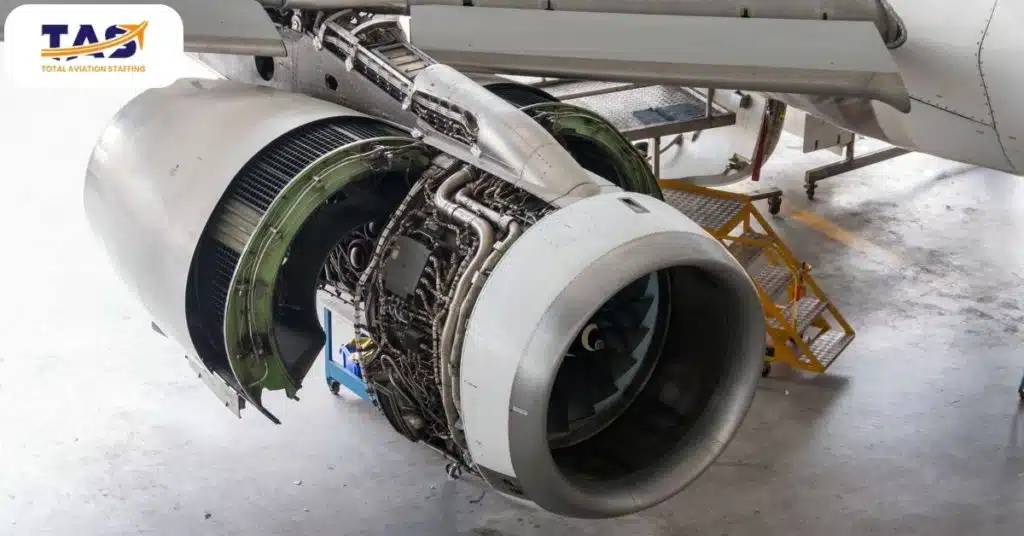
Are you a professional mobile support unit aircraft technician? If so, you need to have the right technical skills and knowledge in order to succeed. From engine maintenance to troubleshooting, understanding the various systems on an aircraft is critical for any successful technician.
In this blog post, we’ll explore nine essential skills every professional mobile support unit aircraft technician should have. From being familiar with the different parts of an aircraft to knowing how to troubleshoot and repair problems, these skills are essential for any mobile support unit aircraft technician. Whether you’re just starting out or a seasoned veteran, these nine skills will help you reach your full potential as a professional mobile support unit aircraft technician. So let’s get started!
Knowledge of Aircraft Maintenance Procedures and Regulations
Professional aviation mobile support unit aircraft technicians must have an in-depth understanding of aviation maintenance procedures and regulations to ensure that their aircraft perform at optimal levels. Without these essential skills, the aviation industry would be in jeopardy due to an inability to keep aircraft operating safely.
Knowledge of aviation maintenance requirements allows technicians to correctly perform preventative inspections, repairs, and replacements quickly and correctly. It is also required for technicians to understand a myriad of aviation terminology and have the ability to apply it in a practical environment.
A thorough knowledge of aviation regulations ensures that both pilots and aircraft technicians are held accountable for any discrepancies that may arise during their duties, allowing them to take proactive approaches when problems arise.
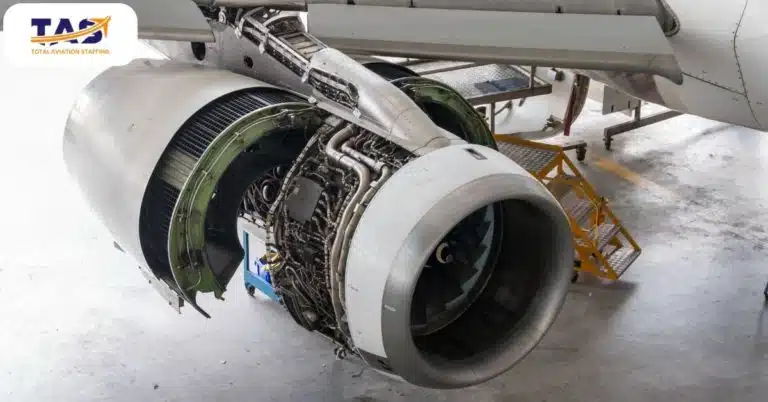
Ability to Troubleshoot Mechanical, Hydraulic, and Electrical Systems
Professional aircraft technicians must have the ability to efficiently troubleshoot mechanical, hydraulic, and electrical systems. These essential skills enable them to quickly diagnose problems with the aircraft and identify any potential issues that may be affecting its performance. A good knowledge of aviation engineering is also necessary so that technicians can properly assess the condition of an aircraft before attempting repairs or replacements.
The following are five key skills that professional mobile support unit aircraft technicians must have:
Knowledge of aircraft maintenance regulations and procedures
Ability to troubleshoot mechanical, hydraulic, and electrical systems
Familiarity with aviation engineering principles
Proficiency in safety protocols and standards
Familiarity with aircraft systems and components
Professional mobile support unit aircraft technicians are essential for the safe operation of aircraft and for providing specialized services. The nine essential skills listed above provide a comprehensive overview of what professional mobile support unit aircraft technicians must have to ensure that their work is done safely, accurately, and quickly.
Without these essential skills, an aviation technician would be unable to perform at peak levels, compromising the reliability and safety of aircraft. As such, it is important for technicians to acquire the necessary knowledge, experience, and skills to remain up-to-date with industry requirements and standards.
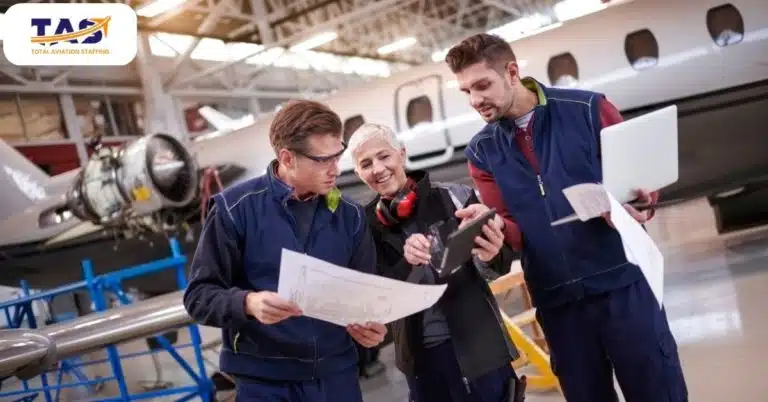
Understanding of Avionics Equipment and Its Functionality
Avionics is a term used to describe the electronic systems and equipment found on aircraft. Professional mobile support unit aircraft technicians must have an understanding of avionics equipment and its functionality in order to properly troubleshoot, repair, and maintain these components.
This includes knowledge of both analog and digital systems, as well as the ability to diagnose any malfunctions or failures that may arise. A good working knowledge of avionics enables technicians to apply their essential skills more effectively, as it allows them to more accurately assess the condition of the aircraft and make informed decisions regarding repairs.
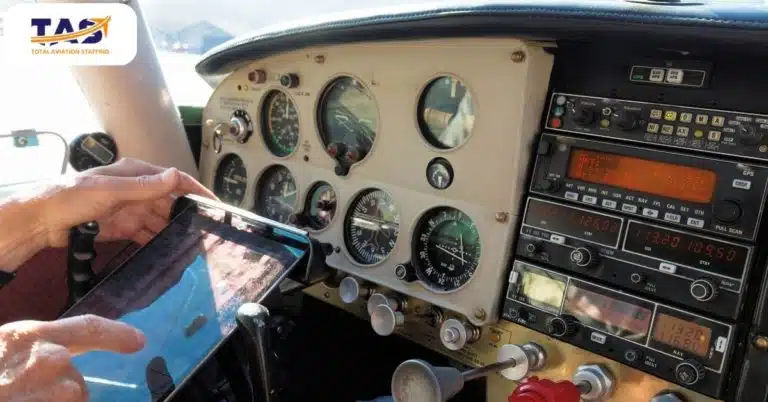
Proficiency in Reading Technical Drawings, Wiring Diagrams, and Schematics
Understanding aviation avionics and their functionality is an essential skill for any professional mobile support unit aircraft technician. Avionics components provide the foundational systems that operate aircraft, including critical functions like communications, navigation, collision avoidance, and more.
Therefore, it is critical to have knowledge of all of these aviation electronic devices in order to properly execute repairs and troubleshoot any malfunctions that may occur when servicing an aircraft. Having a complete comprehension of the various models of aviation avionics equipment should be a priority for any professional mobile support unit aircraft technician to ensure successful maintenance operations.
Technicians must also be proficient in reading and interpreting technical drawings, wiring diagrams, and schematics. This is essential for troubleshooting electrical systems on aircraft, as well as being able to identify any potential problems that could arise when servicing the aircraft. Without these skills, a technician would not have the necessary comprehension to make informed decisions regarding repairs and replacements.
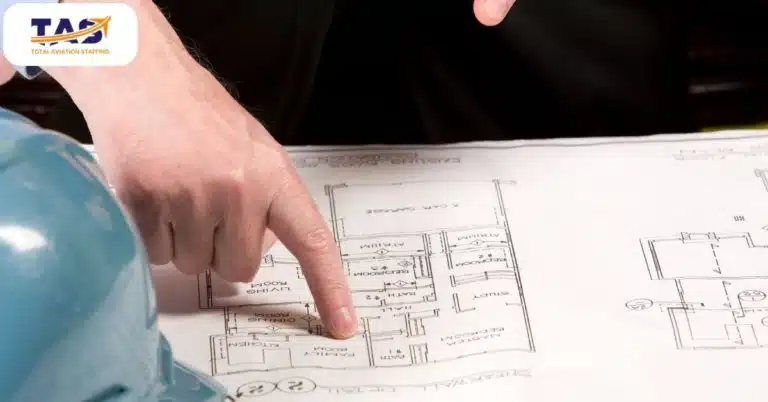
Familiarity With Airworthiness Directives (Ads) And Service Bulletins (SBS)
Aircraft technicians should have a strong aviation background and be intimately familiar with airworthiness directives and service bulletins. These regulatory documents provide the safety standard for aviation operations and the functionality of aircraft components.
ADSs are issued by the FAA to ensure aviation safety, while SBS is issued by aircraft manufacturing companies to ensure aircraft performance standards are met. Mobile support unit aircraft technicians must understand aviation industry best practices for compliance with these regulations in order to properly maintain an airline’s fleet of aircraft.
Additionally, they should be prepared to make well-founded repairs based on their knowledge of ADSs/SBS and aviation industry standards.

Expertise in Fabrication Techniques for Aircraft Structures
Aviation is a field that requires absolute proficiency in fabrication techniques for aircraft structures. As a professional mobile support unit Aircraft Technician, you should have expertise in such techniques so that your aviation teams can make well-informed decisions when it comes to properly constructing and repairing aircraft.
Having knowledge of aviation’s cutting-edge fabrication methods allows technicians to maximize aircraft performance, safety, and efficiency. Achieving success as an aviation technician requires that you possess the ability to accurately read blueprints and plans along with the experience necessary to adapt those plans into actual parts or components suitable for aviation use.
Specialized fabrications such as riveting, welding, and soldering are also invaluable skillsets of an aviation technician possessing excellent fabrication techniques for aircraft structures; these fabrication methods allow you to properly construct intricate parts used by aviation structures quickly yet efficiently. Mastery of these essential skills will give you an invaluable edge in this dynamic aviation world.
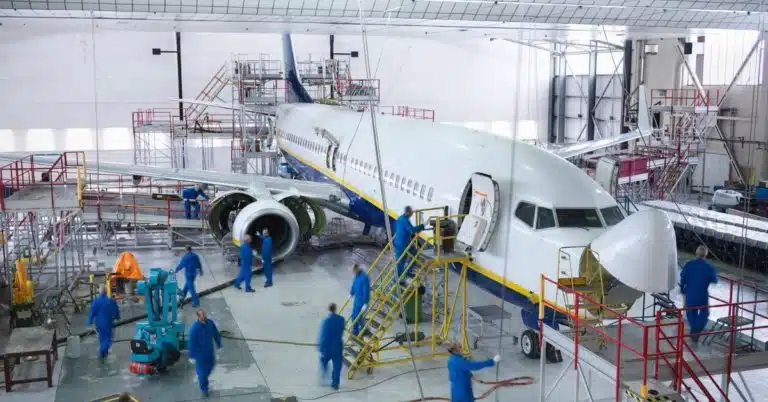
Ability to Use Hand Tools Appropriately for Repair Work on Small Components
As a professional mobile support unit aircraft technician, it is essential to have the proper skills and knowledge necessary to effectively perform repair work on smaller components. Having experience with a variety of hand tools is key to being successful in this field as these tools will be used for completing repairs on a wide range of aircraft parts. Here are five key abilities for utilizing hand tools appropriately for repair work on smaller components:
Ability to identify the correct tool for a job: A technician must be able to recognize which type of hand tool is required when attempting to complete repairs and maintenance tasks. This will allow them to choose the right tool for the job so that they can achieve maximum efficiency and accuracy.
Knowledge of how to use hand tools effectively: A technician should possess the skills necessary to properly and safely utilize hand tools when performing repairs on smaller components. This requires knowledge of the correct safety standards so that they can avoid potential accidents or injuries while using the tools.
Ability to inspect, maintain and store hand tools: In order to ensure that they are always able to utilize the correct hand tool for a job, technicians need to inspect and maintain them regularly. It is also important for them to store the tools correctly so that they remain in good condition.
Skill at using precision measuring devices: A technician should be comfortable using a variety of precision measuring devices in order to ensure that repairs are completed accurately. This requires familiarity with scales, calipers, micrometers, and other devices used for measuring small components.
Knowledge of welding and soldering techniques: Being able to weld or solder small components is a valuable skill for any technician, as it can be used for repairing aircraft parts, creating custom parts, and more. Knowing the proper techniques for executing these tasks correctly is essential for success in the aviation industry.
As an aviation technician, the ability to properly use hand tools for repair work on small components is essential. Mastering these five key abilities will give you the edge necessary to succeed in this dynamic and ever-evolving industry. With knowledge of these essential skills combined with fabrication techniques for aircraft structures, you can become a valuable member of any professional mobile support unit.
This is the foundation that will allow you to become a successful and experienced aviation technician, capable of producing strong craft performance, safety, and efficiency. With these abilities in hand, you can confidently pursue your dreams in the world of aviation.
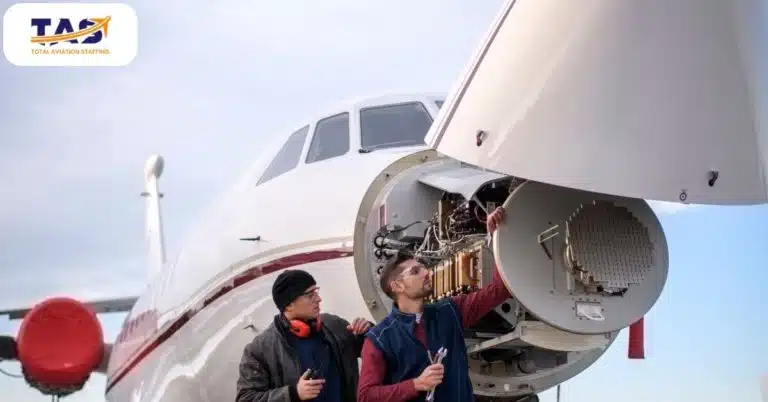
Comfort Level Working at Heights When Necessary for Repairs or Inspections
As a professional mobile aircraft technician, comfort working at heights when necessary for aviation inspections and repairs is an essential skill. Being equipped to work in a variety of locations requires the ability to be agile in your movement as well as comfortable navigating different heights without hesitation.
Working safely and confidently ensures that aviation standards are met and repairs or inspections are completed accurately and efficiently. Having a strong aviation background helps create an environment of trust that everything has been done in accordance with aviation safety guidelines.
Although challenging in nature, being comfortable working at heights is ultimately a must-have skillset for any professional mobile aircraft technician. With the right training and experience, you can become an expert in navigating different heights while utilizing hand tools to complete repairs on smaller components.
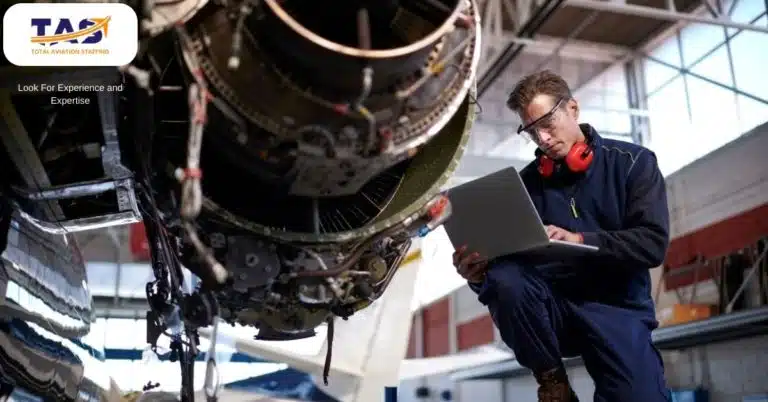
Strong Interpersonal and Communication Skills for Working with Pilots, Other Technicians, and Managers
In addition to the technical skills mentioned above, strong interpersonal and communication abilities are also integral to becoming a successful aviation technician. Working effectively with pilots, other technicians, and managers requires being able to clearly communicate instructions and expectations in order for all parties involved to be on the same page.
Strong verbal communication is necessary when taking directions from pilots or managers. Being able to calmly and effectively explain repair plans or results of inspections is essential in order for all parties to understand the situation. Additionally, having great listening skills helps ensure that all directions are accurately understood and implemented properly.
Working with other technicians also requires a high level of interpersonal skills. Good communication is needed in order to efficiently complete tasks. Being able to articulate expectations in a clear and concise manner is essential for the completion of repairs on time.
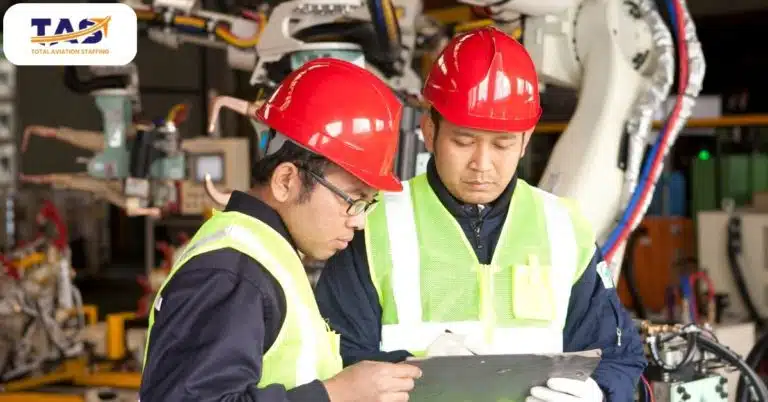
In Conclusion
the skills required to become a successful aviation technician are vast and varied. Mastering these key abilities – welding and soldering techniques, working with hand tools, comfort level in heights if necessary for repairs or inspections, and strong interpersonal and communication skills – will give you the edge needed to be successful within this dynamic industry. With continued knowledge and practice of these skills, you can pursue your dreams in the world of aviation with confidence.
